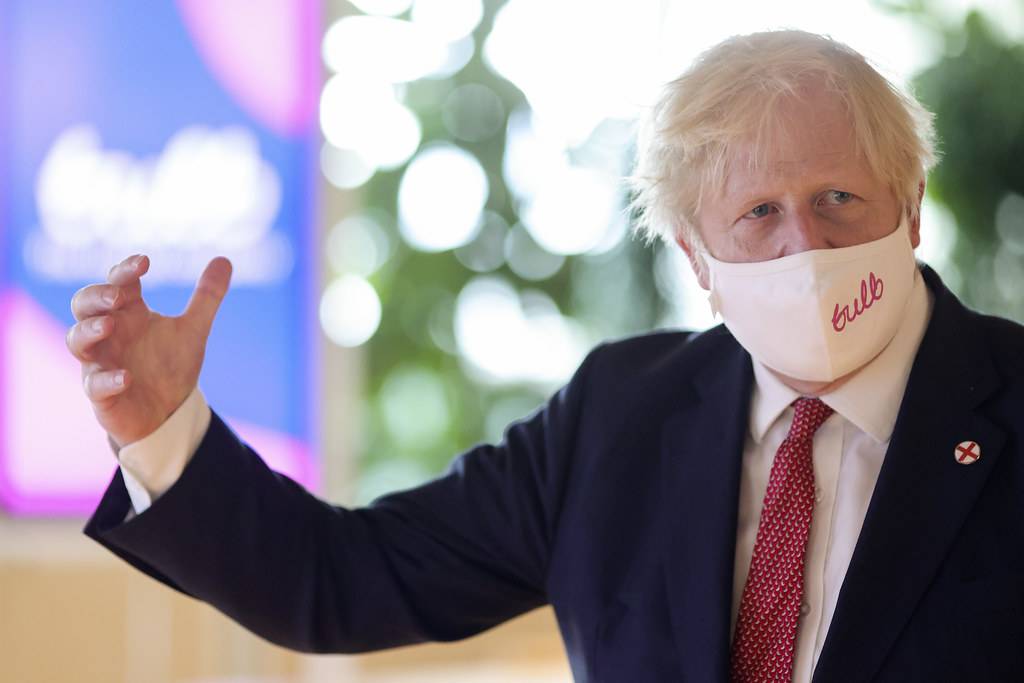Since last week, the government in London has slapped a travel ban on 10 southern African countries, including South Africa, to try to control the spread of Omicron…reports Asian Lite News.
All adults in Britain will now be able to get a third Covid jab, a government scientific advisory body said Monday, as concern mounted about the spread of the new Omicron variant.
The move, approved by Health Secretary Sajid Javid, comes as the UK government said it needed to react swiftly to the new variant, which was first detected in South Africa.
“We’re advising that the booster programme should now be extended to adults aged 18 to 39 years old,” said Wei Shen Lim, of the Joint Committee on Vaccination and Immunisation (JCVI).
Until now, only adults aged 40 and over were eligible for a booster dose six months after their second.
At the same time, the advisory body also recommended second doses of vaccine for children aged 12 to 15.
Since last week, the government in London has slapped a travel ban on 10 southern African countries, including South Africa, to try to control the spread of Omicron.
It has also reintroduced compulsory testing for travellers, and mandatory mask-wearing in shops and public transport in England, as well as self-isolation for contact cases.
The JCVI approved the government’s proposed expansion of the rollout of booster jabs of Moderna or Pfizer-BioNTech to include more people within a shorter time.
Britain is one of several countries to have announced cases of the new variant on their soil, including Germany, Italy and the Netherlands.
Six new cases
Meanwhile, six cases of the new strain were detected in Scotland on Monday, two of them in the largest city of Glasgow. Five others were confirmed in England, Javid told parliament.
“We expect cases to rise over the coming days,” he added.
“In this race between the vaccines and the virus the new variant may have given the virus extra legs,” he told MPs.
Meanwhile, six cases of the Omicron coronavirus variant have been confirmed in Scotland, taking the total for the United Kingdom up to nine with the previous three infections detected in England, the Scottish health authorities reported on Monday.

“Six cases of the Covid-19 omicron variant have been identified in Scotland. Four cases are in the Lanarkshire area and two have been identified in the Greater Glasgow and Clyde area,” the Scottish semiautonomous government said in a statement, with Scotland’s Health Secretary Humaz Yousaf adding that “all will receive expert help and support and Public Health Scotland will undertake enhanced contact tracing in all cases.”
According to Yousaf, this will be a worrying time for the six people now identified as having the new variant. All will receive expert help and support and Public Health Scotland will undertake enhanced contact tracing in all cases.
He warned that since there was still much to learn about this new variant of the novel coronavirus SARS-CoV-2 regarding its severity, transmissibility and response to treatments and vaccines, people must be cautious and do everything they can to minimize the risk of spreading infection. On Friday, the World Health Organization (WHO) identified the new strain of the coronavirus, Omicron, as one of concern, since it may be more transmissible and dangerous. Cases of the new variant have already been confirmed in multiple countries and governments rushed to suspend travel with southern African nations in order to prevent the spread of the new strain.
In the United Kingdom, face coverings will be mandatory on public transport and in shops and other closed settings including banks, post offices and hairdressers from Tuesday, when isolation rules will return for international arrivals until they receive a negative PCR test for Covid-19.
The UK also convened an urgent meeting of the Group of Seven health ministers on Monday to discuss the Omicron variant.
Measures against Omicron variant come into effect
Targeted measures to prevent the spread of the Omicron variant took effect from 4am today.
Yesterday the JCVI advised the booster programme was extended to all 18-39 year-olds and the gap between the second dose and booster was reduced to three months. All those aged 12 to 15 years have now been advised to receive a second dose of the Pfizer-BioNTech Covid-19 vaccine, no sooner than 12 weeks after the first dose. Severely immunosuppressed individuals who have received three primary doses, should now also be offered a booster dose.

Prime Minister Boris Johnson said, “The measures taking effect today are proportionate and responsible` and will buy us time in the face of this new variant. Based on everything we know, our vaccines and boosters remain our best line of defence, so it is more important than ever that people come forward when eligible to get boosted. Not only will today’s steps help us slow down the variant’s spread, but they will help us protect each other and the gains we have all worked so hard for.”

